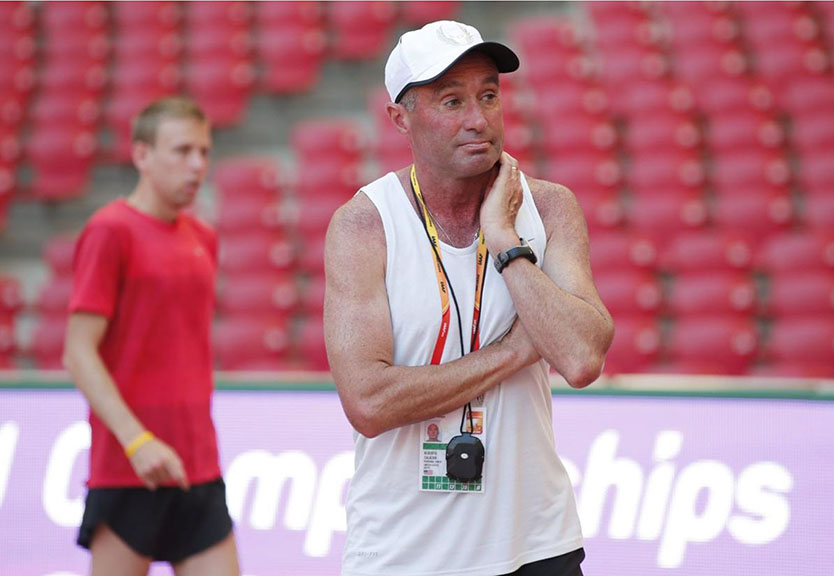LAUSANNE, Switzerland (Reuters) – The International Olympic Committee (IOC) will ask the World Anti-Doping Agency (WADA) for details regarding the case of American top running coach Alberto Salazar and the potential involvement of athletes in doping — witting or unwitting.
Salazar, who has coached some of the world’s top distance runners, including Olympic and world champion Mo Farah, was banned for four years for doping violations by the U.S. Anti-Doping Agency (USADA) this week.
USADA said Salazar was punished for “orchestrating and facilitating prohibited doping conduct” as head coach of the Nike Oregon Project (NOP), a camp designed primarily to develop U.S. endurance athletes.
But USADA did not sanction any athletes who might have been the recipients of this prohibited doping conduct, even inadvertently.
“We will follow up on questions that remain open,” IOC President Thomas Bach told reporters yesterday. “The IOC will write a letter to WADA in this respect.
“First of all to see how many athletes have been investigated. Have all the athletes been investigated who were training in this centre there?” Bach said.
“Does the report address the whole period of the existence of this project or only part of it? Could there be any Olympic results affected directly or indirectly?”
Salazar, who was a celebrated distance runner, winning three consecutive New York City marathons starting in 1980, has denied any wrongdoing and has vowed to appeal against the ban.
Bach said athletes operated under the strict liability concept which meant that whether they knew they were being given banned substances or not would have little impact on potential sanctions.
USADA said Salazar, who also coached American Olympian Matthew Centrowitz among other top distance runners, trafficked the banned performance-enhancing substance testosterone to multiple athletes.
Salazar also tampered with or attempted to tamper with NOP athletes’ doping control processes, the agency said after concluding its four-year investigation.
The USADA report also cited emails showing that Nike Inc Chief Executive Mark Parker was made aware of experiments involving AndroGel, a topical testosterone cream that is banned.
Nike, which sponsors many high-profile runners, is standing by Salazar.
Nike has denied any role in administering performance-enhancing drugs and said in a statement on Tuesday that it does not condone the use of banned substances.
Bach also said that the IOC would now begin storing samples of its pre-Olympics testing programme, which starts months before the Games, for up to 10 years to allow for re-testing, as it is doing with Olympic Games samples taken from athletes.
“We would like to see such long-term storage also for the pre-Games testing programme to increase and strengthen the deterrent effect this long-term storage has,” Bach said.
Many positive tests at past Olympics have been revealed years later during re-tests ordered by the IOC and dozens of athletes have subsequently been stripped of their medals.










